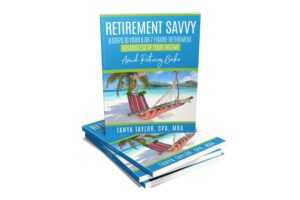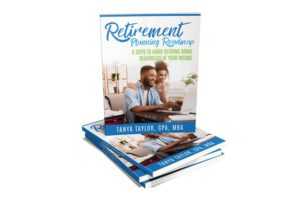- Posted on
- No Comments
- Personal Finance
Retirement planning is essential for an individual especially in times like these where Covid-19 is in existence. The virus has created unprecedented social and economic impact worldwide, which will last for decades to the future. The World Bank’s Global Economic Prospects forecasted a 5.2 percent contraction in global GDP in 2020. Closer to home, the U.S. has seen its fair share of contraction of the economy. While many families were already struggling to manage their bills and pay their debts, while attempting to save, this crisis has laid bare the systemic failures of America’s retirement system.

As discussed by Teresa Ghilarducci and Tony James in this CNN Business Article, the pandemic pushed more than three million older Americans into poverty, because they were forced to retire earlier than planned. The pandemic has also had a significant impact on non-college-educated men, women, and non-whites, with a more negative impact on Black Americans, women, and small business employees. Approximately 20% of non-white older employees became unemployed by August 2020.
At the forefront of this crisis, is the ongoing statistics highlighting the dire need for retirement planning for Americans and their unpreparedness for superannuation.
There is no question that the retirement planning Crisis is getting from bad to worst in America, and individuals need to start making changes right now to start preparing for retreat.
Related article: Let’s Talk Life Insurance. How Much Do You Need?
Evidence already exists that baby boomers will live longer than their expectations, and if that happens, there is a high likelihood of them running out of money, because they neither have saved enough nor have they planned for it.
What can you do to plan now?
Now that you have some insight into how bad the crisis is, there are several steps that you can begin to take now, to change your retirement story.
One of the simplest ways that you can begin is by investing in your employer-sponsored retirement plan. Many employers offer tax-deferred and after-tax retirement plans – 401(k), 403(b), Roth 401(k), etc. The withdrawals from your paycheck are automated and if you begin as soon as you start your new job, you will not miss that money, and you will know that you are putting funds away for your nest egg.
You should not just limit yourself to retirement planning.
If you do not have an employer-sponsored plan, you can still benefit by taking advantage of other tax-deferred accounts such as a Traditional IRA, ROTH IRA or if you are self-employed, the Solo 401(k) or various other retirement savings plans.
Depending on your age, you may need to accelerate your savings. This may require some sacrifices, but once you have a goal in mind and know that you are working towards that goal you will begin to identify ways to more effectively curb your spending.
You must become more aware and exercise prudence in securing your future if you want to maintain your current lifestyle or quite frankly even be able to afford the basic necessities during retirement. There is no guarantee of what social security benefits will be like by the time you retire especially if you are a young American.
The reality is that starting in 2021, social security will be paying out more money than it is taking in. The Congressional Budget Office (CBO) expects that the asset reserve in the disability insurance trust will be depleted by 2026, and the old age survivor insurance to asset reserves to be depleted by 2031. Even if President-Elect Joe Biden were to make social security reform a priority, benefits will look very different in the near future.
Admittedly, the existing system is leaving many people out. Retirement plans like 401(k) s suit a few employees and are not helpful for many lower-income Americans.
Lack of financial knowledge is also one of the barriers that are keeping Americans in debt and unprepared for retirement. Invest in yourself by getting the financial knowledge you need. This is an investment in your future. There is a myriad of ways to acquire this type of knowledge. You can get a financial coach, purchase books, or read blogs and watch videos or any combination. It is important however that you are able to distinguish what is real from all the incorrect information that exists in the media because depending on the route you take, it can end up costing you more in the long run. To learn more about retirement planning and crisis, grab a pen and paper, and watch this free training.
About Tanya
Tanya Taylor, CPA, MBA is the founder and CEO of Grow Your Wealth. Her mission is to help professionals and business owners ditch bad debt and create a 6 or 7-figure retirement income by learning how money works in 6 steps so that they can build a legacy without feeling stuck.




